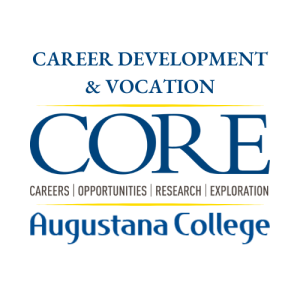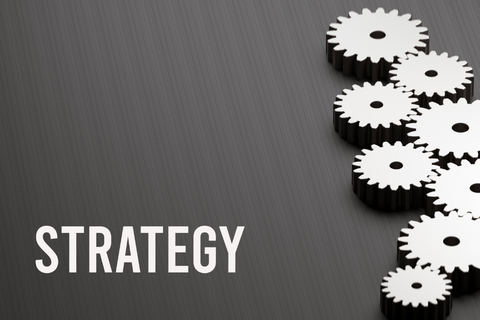Interviewing Strategies
The culture of work looks significantly different and continues to evolve because of COVID. Not only has the way we work changed, but so has the way we are recruited, interviewed, selected, and onboarded. These updated Strategies show you how to prepare for interviews in this new arena while also sharing tried and true interviewing guidelines that employers and recruiters expect.
There is no set recipe for a successful interview, but there are some universal goals for your interview.
- To elaborate and demonstrate the skills and experience listed on your resume and application.
- To demonstrate your career readiness skills. These are the skills that employers seek, and you have had the chance to gain as part of your education at Augustana College.
- To learn more about the organizational culture and whether it fits with your own career goals
Types of Interviews
- Screening: This is a general interview aimed at weeding out those who don’t meet the requirements or who don’t fit with the organizational culture. Common places screening interviews are held include on-campus interviews and career fairs. The purpose of a screening interview is to eliminate unqualified candidates.
- Selection: A selection interview is a longer, more thorough interview geared toward identifying more qualified candidates.
- On-site: If the interview is in-person, a selection interview is often an entire day incorporating three to five people or whole teams of people. It might even include a dinner the evening before. Most likely this type of interview includes a tour of the facility.
- Virtual: As the culture of work continues to evolve as a result of COVID, more interviews, as well as work itself, may be performed virtually. Virtual selection interviews may be as long as an on-site interview, incorporating numerous people in various roles within the organization. They might also be comprised of series of virtual meetings over a few days or weeks.
Preparing for your Interview
- Interviewing Attire
At least a week before your interview, consider a haircut and make sure your professional outfit is appropriate, fits, and is clean. Need professional clothing? Watch for our annual JCPenney Suit Up event each spring offering deep discounts on professional attire. View Interviewing Attire Resource - Define your criteria
Clearly define your goals before the interview. What can’t you live without in a position? You will also be asked if you have any questions for them. When making your list in advance, make sure to incorporate those questions regarding your criteria. In addition, you’ll need to ask about the job, the company, and the industry. - Your Skills vs. Skills They Seek
Draw a line down the center of a piece of paper. On the left side, make a bulleted list of what the employer is looking for based on the job posting. On the right side, make a bulleted list of the qualities you possess that fit those requirements. Think of concrete examples that you could use in the interview to demonstrate those skills you possess.
Unsure of your skills or which skills employers seek? These resources might be helpful:
Know the Organization
Employer/Industry Research supports the job search in several ways. Learning all there is to know about a specific employer assists in customizing job search materials and preparing for interviews. Research also helps to identify organizations, job openings, and skills needed for specific careers and industries.
Practice, Practice, Practice
Interviews are one of the most nerve-racking experiences you will have to go through in your job search. The secret to interviewing is to practice. The more you practice the easier interviewing will become.
Research Salary
Research salary data and determine your worth. Determine your salary needs based on your living expenses — what is your bottom line? As a recent grad you likely do not have a professional salary history. When asked about your salary requirements
During the Interview
-
-
- Try to focus on the points you have prepared without sounding rehearsed or stiff.
- Relax and enjoy the conversation. Learn what you can about the company.
- Ask questions and listen; read between the lines.
- At the conclusion, thank the interviewer and determine the next steps.
- Ask for the interviewer’s contact info so you can send follow-up correspondence .
-
After the Interview
-
- As soon as possible, write down what you are thinking and feeling.
- Later in the day, look at what you wrote and assess how you did.
- Write a follow-up thank-you correspondence, reminding the interviewer of your qualities- maybe something that you forgot to say in the interview.
*Completing a practice/mock interview is equal to 6pts for Viking Score*

